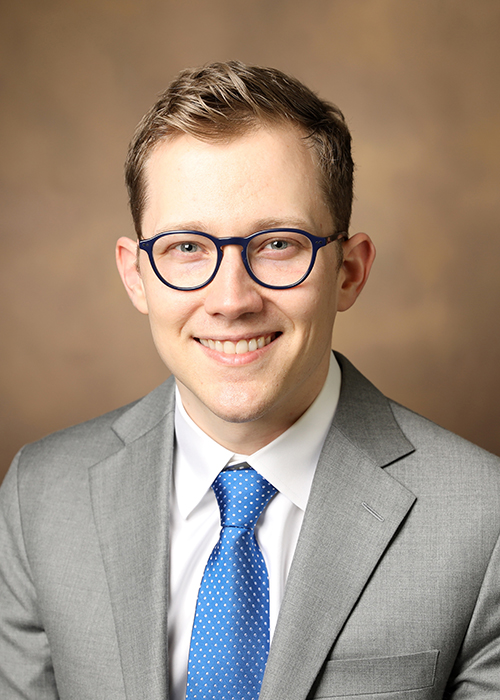Vanderbilt University Medical Center neurosurgeons are taking a pragmatic approach to their research, with support from the hospital’s first-of-its-kind Center for Learning Healthcare.
Patrick Kelly, M.D., an assistant professor of neurological surgery at Vanderbilt, is leveraging the expertise of the Learning Center’s group of bioinformaticians, surgeons and patients to develop research datasets – and even conduct cohort studies directly in the EHR.
“My big interest is in patient-reported outcomes,” Kelly said. “We’re building systems to collect patient-reported outcomes for all of our tumor and skull-base patients systematically. Ultimately, our goal is to collaborate with other centers.”
Earned Recognition
The team is well-poised for collaboration. Vanderbilt was recently recognized as a Multidisciplinary Team of Distinction by the North American Skull Base Society (NASBS). The designation requires at least four NASBS members across relevant subspecialties, such as neurosurgery, otolaryngology, rhinology, otology and others.
“Our engagement in NASBS is growing,” Kelly said. “Most of our faculty are pretty well-connected in their relative disciplines. The ENT group here is well-storied. The group is now up to seven otologists, which is huge.”
The breadth of expertise has helped boost patient volume, Kelly says.
“With four skull-base surgeons, we’re able to treat a high volume of acoustic neuromas, meningiomas, pituitary tumors, and other skull base pathologies,” he said, adding that Vanderbilt is one of a small handful of high-volume centers treating patients with such conditions.
Building a Rare Dataset
Even as a major referral center in the Southeast, practical challenges remain when it comes to research within the specialty, Kelly says.
“Most of the tumors we treat are very rare. It’s hard to collect data on them at a single center,” he explained. “For some, we treat one a year. There’s no way we’re ever going to make meaningful deductions from research with that few patients.”
To address this, Kelly is developing tailored tools to collect patient data systematically. This avoids incurring the significant costs typically associated with specialty clinical trials, including salaries for research coordinators and staff.
“We are trying to do this in a way that leverages the EHR so that it is scalable to other institutions,” Kelly added.
Enhancing Patient Engagement
Kelly also is investigating barriers to data collection to ensure that older adults and others in minoritized demographic categories aren’t left behind.
“We’re using Epic features to administer specific questionnaires to patients at the time of their neurosurgery visit,” he said. “This allows us to study their quality of life and symptom burden longitudinally. And it’s seamless, really. Patients can fill it out on their phone or with one of our tablets when they check in, and we can review it immediately in Epic, plus track it over time.”
“It’s trying to balance getting the most important information from patients without burdening them with a huge number of questions, and also making the data applicable to the enormous variety of tumors that we see.”
Kelly says other hurdles in developing the EHR tools have been logistical.
“It’s trying to balance getting the most important information from patients without burdening them with a huge number of questions, and also making the data applicable to the enormous variety of tumors that we see.”
EHR Trial Support
Next up, Kelly is planning to conduct practical pragmatic trials directly in the EHR.
“These are trials that are larger in scale, but don’t require a lot of researcher support,” he said. “The randomization, the intervention, each step is built into the medical record.”
The EHR infrastructure Kelly is building could support studies of minimal-risk interventions in a way that is more practical than resource-intensive traditional clinical trials, Kelly explained.
“The actual trial is running in real-time in the background. It’s collecting data in a way that’s quasi automated. Basically, it’s building randomized controlled trials into routine medical care.”
Kelly completed a fellowship in neurosurgical oncology and skull-base surgery before returning to work at Vanderbilt University Medical Center, where he attended medical school and neurosurgery residency.
Part of the appeal, he says, was the opportunity to conduct multidisciplinary research amid expertise.
“I really wanted to come back to Vanderbilt because our ENT group and neurosurgical team are very collaborative, in a way that I think is fairly unique. Occasionally, with experts in multidisciplinary settings, there can be big personalities that don’t mesh well together, but that’s not the case here. Collaboration is the norm.”





